All Pre-1933 US Mint Gold Coins
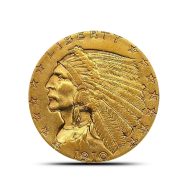
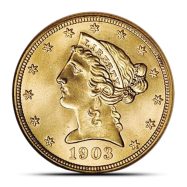
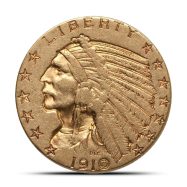
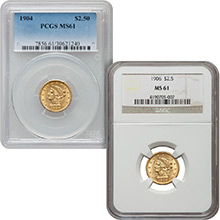
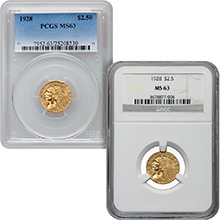
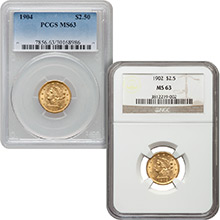
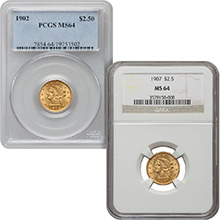
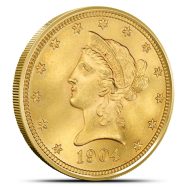
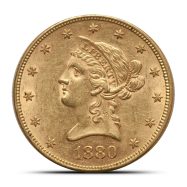
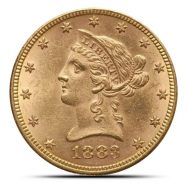
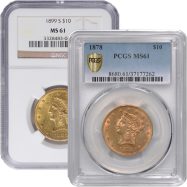
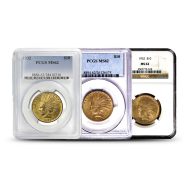
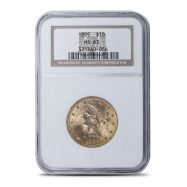
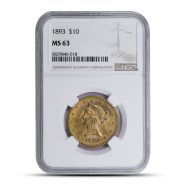
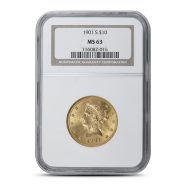
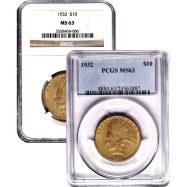
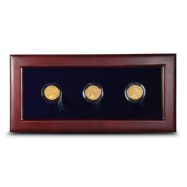
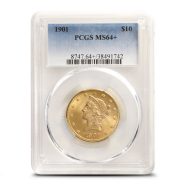
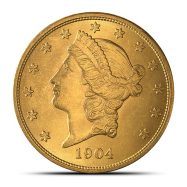
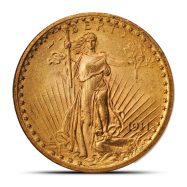
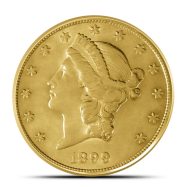
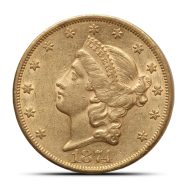
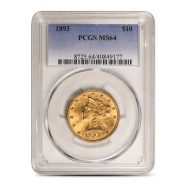
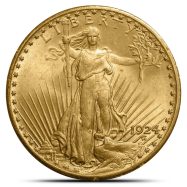
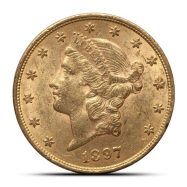
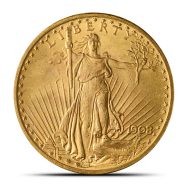
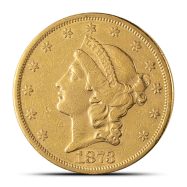
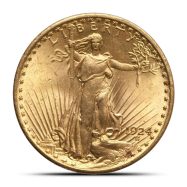
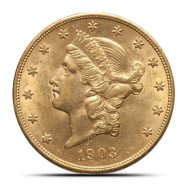
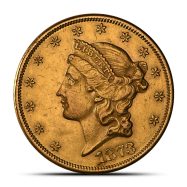
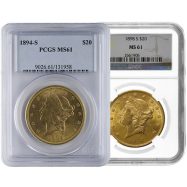
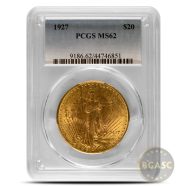
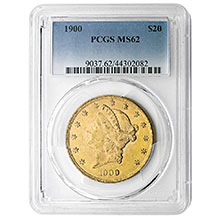
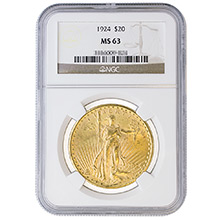
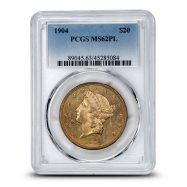
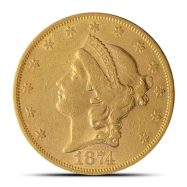
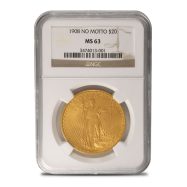
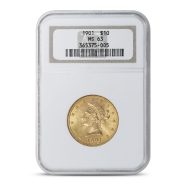
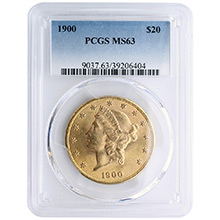
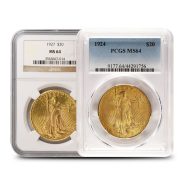
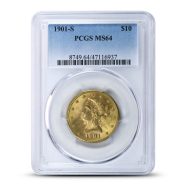
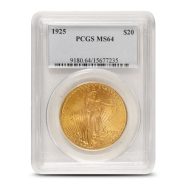
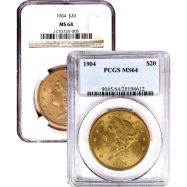
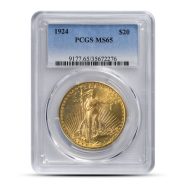
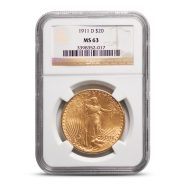
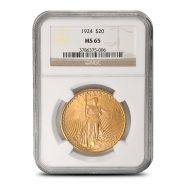
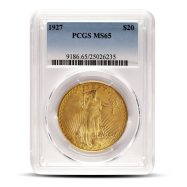
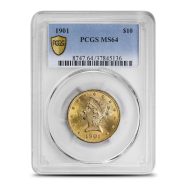
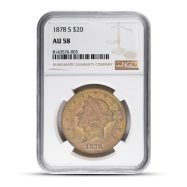
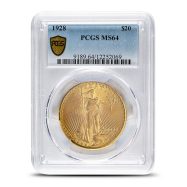
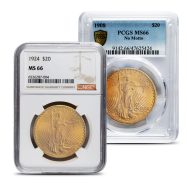
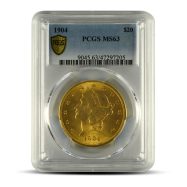
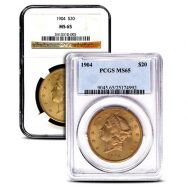
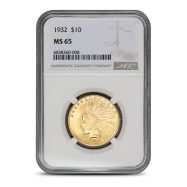
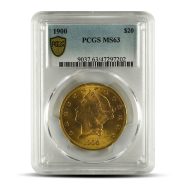
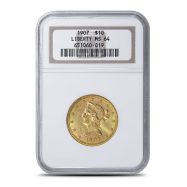
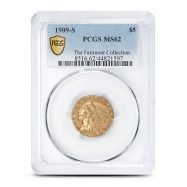
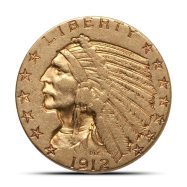
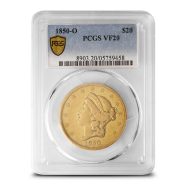
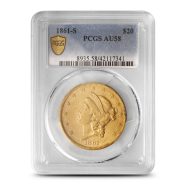
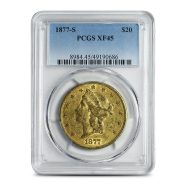
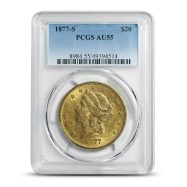
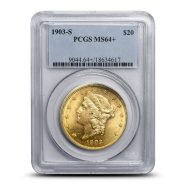
All Pre-33 US Mint Gold Coins at BGASC
From 1795 to 1933, the United States Mint issued gold coins for circulation use. These coins were predominantly used in domestic commerce within the United States, though the larger $20 Gold Double Eagle, was largely used in bank-to-bank transfers and international commerce with overseas trading partners. The primary collection of Pre-33 US Gold Coins was known as the US Eagle, a collection with $20, $10, $5, and $2.50 denominations. However, the US Mint also issued $1 and $3 gold coin denominations.
Pre-33 US Eagles
The most common gold coins issued by the United States Mint prior to 1933 were the denominations of the US Eagle Series. These coins debuted in 1795 in the Eagle, Half Eagle, and Quarter Eagle denominations, with the Double Eagle introduced in 1850. Below are the basic details of these denominations:
- $10 Eagle – diameter of 33 MM (1795-1837) or diameter of 27 MM (1838-1933)
- $5 Half Eagle – diameter of 25 MM (1795-1828), diameter of 23.8 MM (1829-1833), diameter of 22.5 MM (1834-1839), or diameter of 21.6 MM (1840-1929)
- $2.50 Quarter Eagle – diameter of 20 MM (1796-1820), diameter of 18.5 MM (1821–1828), diameter of 18.2 MM (1829-1839), or diameter of 18 MM (1840-1929)
- $20 Double Eagle – diameter of 34 MM (1850-1933)
Pre-33 US Eagle Designs
Over the course of time, the US Mint used a variety of Liberty and bald eagle images on the coins in the US Eagle collection. While the coins shared design elements during specific timeframes, there were exceptions to this rule that saw some coins undergo different designs based on denomination. The designs featured, by denomination, include the following:
- $10 Eagle – Turban Head (1795-1804), Liberty Head Coronet (1838-1907), and Indian Head (1907-1933)
- $5 Half Eagle – Turban Head (1795-1807), Draped Bust (1807-1812), Classic Liberty Head (1834-1838), Liberty Head Coronet (1839-1907), and Indian Head (1908-1929)
- $2.50 Quarter Eagle – Turban Head (1796-1807), Classic Liberty Head (1834-1839), Liberty Head Coronet (1840-1907), and Indian Head (1908-1929)
- $20 Double Eagle – Liberty Head Coronet (1850-1907) and Saint-Gaudens Liberty (1907-1933)
Please note that the dates mentioned for the Turban Head and Draped Bust designs reflect the period of active production for those designs at the US Mint. The coins with each respective design remained in circulation in the United States in between those periods. For example, no new Turban Head Designs were struck in the Eagle denomination after 1804, or in the Half Eagle and Quarter Eagle after 1807, but that design remained in circulation until the introduction of subsequent new designs.
$1 US Gold Coins
In 1849, the United States Mint introduced a $1 gold coin for circulation use. Discussion around the introduction of a $1 US gold coin began in the 1830s, but Congress never took action to authorize such a denomination in gold until the California Gold Rush. After the increased volume of gold in the Treasury, Congress authorized a $1 US gold coin that was introduced in 1849. Then-US Mint Chief Engraver James B. Longacre created a Liberty Head design that would famously undergo three obverse designs and two reverse designs in its time in circulation. The coins were in circulation until 1889 and featured the following designs:
- Type 1 (1849-1854) – The original Liberty Head design was similar to Christian Gobrecht’s original 1838 design for the US Eagles. It captures Liberty wearing a coronet crown with a ring of 13 stars around the field. The Type 1 reverse, used for the same period and designed by Peter Filatreu Cross, featured the nation of issue around the edge of the field, with a small wreath around the denomination and date.
- Type 2 (1854-1856) – Longacre’s first redesign recast Liberty as an Indian Princess wearing an ornate, feathered headdress. The Type 2 design featured a smaller Liberty Head within the field. Longacre redesigned the reverse, replacing Cross’ design with a larger wreath of cotton, corn, tobacco, and wheat to reflect agriculture in the American North and South, while removing the nation of issue and enclosing the date and denomination within the wreath.
- Type 3 (1856-1889) – This was the final design and featured only a change in the obverse this time. Longacre enlarged the prominence of Liberty’s head within the design field and, like the Type 2 obverse before it, replaced the ring of 13 stars with the nation of issue around the portrait.
$3 US Gold Coins
The introduction of the $3 US Gold Coin came at the same time that Chief Engraver James B. Longacre was redesigning the $1 US Gold Coin for its Type 2 release. Not surprisingly, Longacre used those redesigns in his artwork for the $3 US Gold Coin. The obverse of the coins features the left-profile relief of Liberty as an Indian Princess, with an ornate, feathered headdress. The reverse side of the coins comes with the same wreath of cotton, corn, tobacco, and wheat surrounding the denomination and date mark. The $3 US Gold Coin was struck from 1854 to 1889 and had only one minor design change. The word DOLLARS on the reverse was originally struck in small text, with larger text introduced in 1855.
Buy Pre-33 US Mint Gold Coins from BGASC
Please feel free to reach out to BGASC if you have any questions about Pre-33 US Mint Gold Coins. You can reach our customer service team at 888-992-4272, chat with us online, or email us directly.




